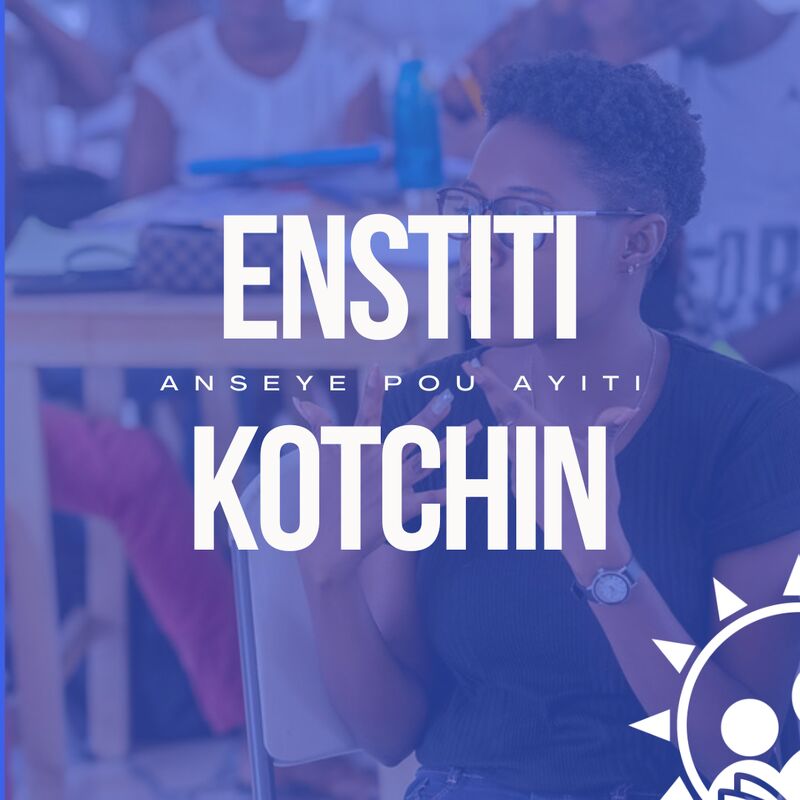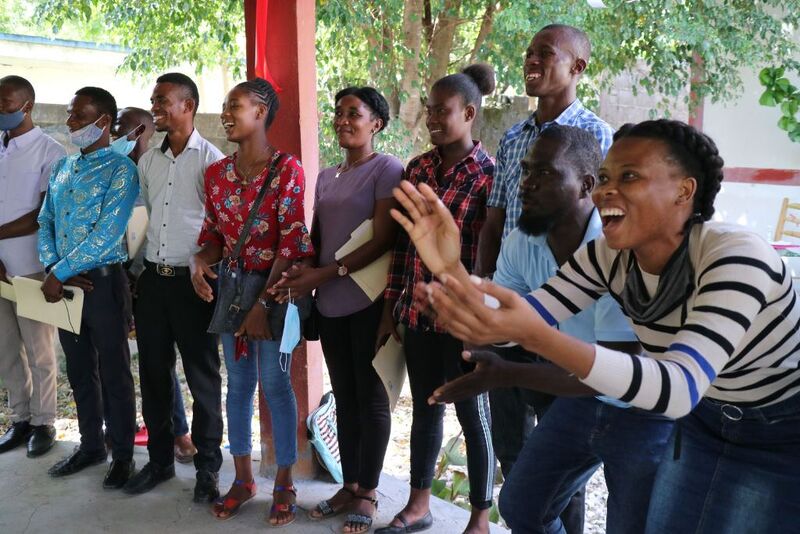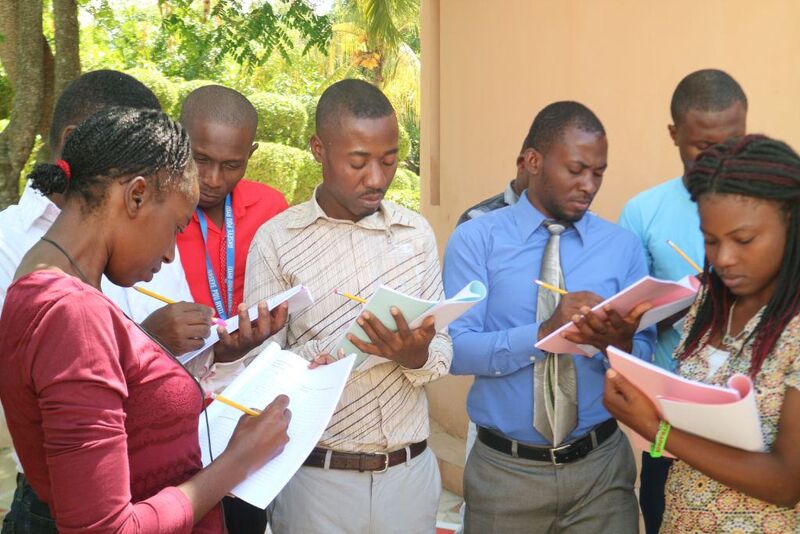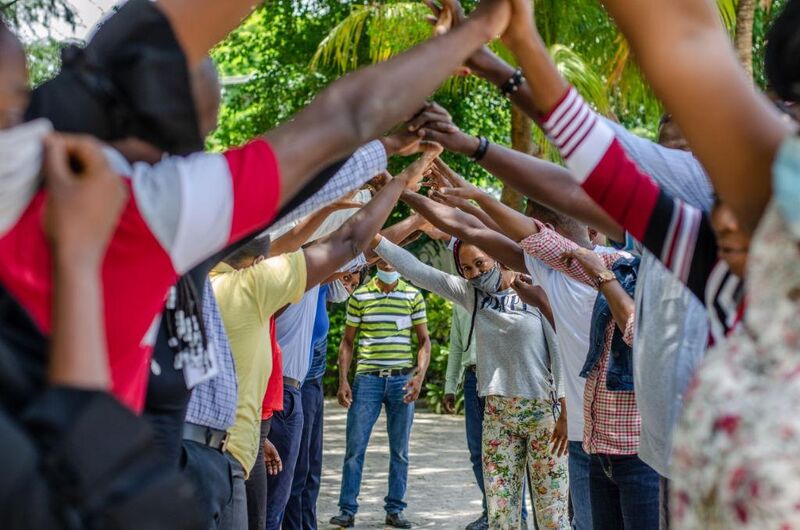Anseye Pou Ayiti is committed to enhancing the Haitian educational system to ensure every citizen has access to quality education. Through collaboration with communities, Anseye Pou Ayiti strives to cultivate a network of civic leaders dedicated to fostering an equitable education system that is rooted in history, values, and vision.
This initiative is one of the priorities in "phase 2" of the Anseye Pou Ayiti movement. Our objective is to expand one of the tools – Coaching – that has significantly contributed to APA's impact since our first cohort of teacher-leaders (in 2015). By establishing a broader network of coaches, we aim to extend skill development opportunities to more learners, teachers, and communities particularly in the provinces. Ultimately, we want to effect systemic change within the national education framework, positioning coaches as pivotal figures in the educational landscape. Upon completing this professional development series, coaches will be able to work across various sectors such as organizations, businesses, and hospitals, because coaches are vital catalysts for cultivating leadership across society. Therefore, the curriculum is crafted to foster a wide range of skills.
These coaches will be assigned to APA partner schools located in the Central Plateau department. The duration of the training program is set at total of four years. There will be virtual and in-person training during the first year, followed by a three-year full time service period at the designated school while still receiving training (one coach per school). Upon completion of this commitment, coaches will Have the flexibility to pursue opportunities in other sectors.

When we work together, we progress more effectively. The proverbs "Yon sèl dwèt pa manje kalalou" (One finger cannot eat okra) and "Men anpil, chay pa lou" (Many hands make the load lighter) illustrate that despite the presence of individualism, it does not hinder our ability to unite and collaborate. This spirit of solidarity is evident in our partnerships with existing schools and institutions that share our commitment to transformative education. The essence of the solidarity we advocate is manifested through our actions.
Excellence is measured by the quality of our work and how we respond to responsibilities. It is imperative that we embody excellence in every aspect of our endeavors—whether it is at work, within the classroom, or through engagement in community activities. Our commitment is to perform to the best of our abilities in all we undertake. APA is dedicated to achieving unparalleled excellence, focusing on the development of learners' skills rather than rote learning. We are committed to ensuring that every learner receives the personalized support they need.
Mutual respect is fundamental, encompassing the diverse confessions of faith, practices, life philosophies, and customs. Respect ensures the smooth functioning of society, facilitating easier and more effective interactions among individuals. Within APA, respect for the unique customs of each area is paramount. We consistently emphasize the three Cs—Culture, Customs, and Community—as the essential pillars that underpin our work. For APA, respect is applied to every little detail.
Generally, commitment demands careful consideration prior to its undertaking. Within APA, commitment is twofold. The first level involves a formal agreement, as evidenced by a contract signed by the coach. The second level, though not formalized through a signature, is equally crucial. It represents a moral pledge to champion the cause of education in Haiti. APA acknowledges that it cannot single-handedly transform the nation; however, we maintain that collective effort can lead to significant change. To us, commitment means accountability.
The institute aims to prepare coaches to serve as dynamic forces and catalysts for development within schools and communities. These coaches are expected to engage in meaningful relationships with community members and utilize all available human resources.
For a candidate to be considered for recruitment into this program, they must:
Possess a degree in Education, or from Ecole Normale Supérieure (ENS), or a related field;
Have at least three years of experience in teaching, school administration, or school inspection;
Have a minimum of two years of experience in a supportive or supervisory role;
Reside in the Central department or be willing to relocate there for the duration of the program, including the assignment period at the designated school (total 4 years). Important: APA does not cover travel and accommodation expenses;
Own a personal computer with adequate performance capabilities, along with a smartphone;
Exhibit a high level of leadership qualities;
Show a strong capacity for innovation;
Possess excellent oral and written communication skills (Haitian Creole and French);
Demonstrate proficient technological skills and experience;
Maintain a degree of independence and personal discipline.

The training content is highly practical. It aims to enhance the existing knowledge of participants in pedagogy and adult education, while incorporating aspects of coaching and leadership.
The ultimate goal is to establish a network of teachers proficient in both teaching and learning, who are equipped to guide the school community towards transformative change. This approach aims to foster a more inclusive school environment that views itself as the nucleus of community-wide change. Additionally, the training these coaches receive will enable them to work across various sectors.
This training covers the following 5 modules:
Basic coaching principles
Coaching techniques
Andragogic techniques
School and community relations
Digital culture

As mentioned above, the role of the coach within this program is pivotal. While this document outlines a broad overview, it is important to note that the descriptions provided do not capture the full scope of responsibilities coaches will assume. Generally, coaches are expected to:
Support the school's pedagogical team and teaching staff to enhance student outcomes;
Create and fortify connections between the school and its community;
Deepen the engagement between parents and the school;
Contribute to pedagogical and administrative decision-making;
Act as an agent for change within the community;
Collaborate with the school's parent committee and staff to foster a transformative educational environment;
Assist in analyzing results to inform strategic decision-making.
The APA approach does not prioritize school construction. This focus does not undermine the significance of school infrastructure but rather prioritizes quality education. Consequently, APA actively seeks to forge partnerships with existing schools to participate in this program. Collaborating schools will:
Fulfill specific requirements and conditions,
Execute a formal agreement protocol.
Adopt Creole as the primary language of instruction (this does not mean excluding the use of French);
Agree to prohibit corporal punishment;
Ensure staff are compensated at least the minimum wage as stipulated by APA;
Maintain a minimum of one teacher per classroom
Have a pedagogical director;
Uphold a standard of rigor, discipline, and accountability;
Embrace and integrate the APA general philosophy

Professional Development Sessions for teaching staff;
Coaching for teachers;
Coaching for the administrative staff;
Involvement and collaboration with the school community and parents' committee.